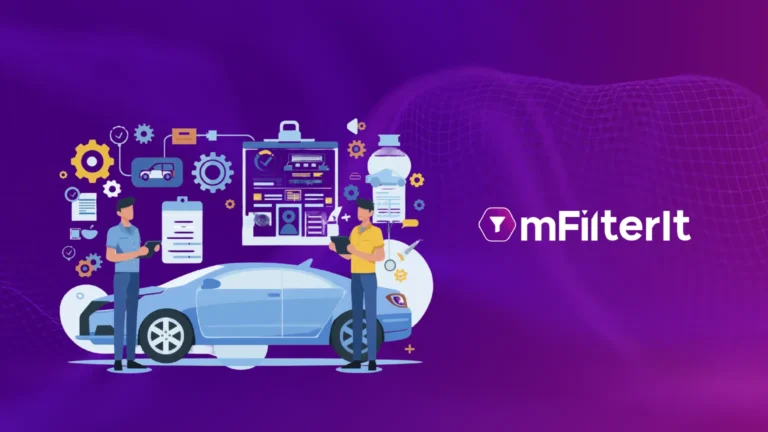The clicks are soaring. Traffic is peaking. Teams are gearing up for the holiday rush.
But not all that traffic is real. Budgets are rising, but your CPC campaign conversions are not keeping pace.
With the onset of the holiday season in USA, online shopping spikes from Black Friday through Christmas. Ecommerce brands ramp up their budgets for CPC campaigns to capture the attention for eager shoppers. But rising traffic also brings higher ad fraud risks. Relying only on surface-level metrics creates risk for brands to pay for worthless interactions, making decisions based on incomplete data, and reducing ROI even when dashboards look healthy.
In this blog, you will discover –
- How click fraud impacts our CPC campaigns
- What are the sophisticated types of click fraud
- Why click-level validation is not enough for your CPC campaigns
- Why full-funnel validation is the new benchmark
- Actionable insights for advertisers to safeguard their campaign
The Hidden Cost of Click Fraud in CPC Campaigns
Fraudsters, competitors, and even certain affiliates generate invalid clicks on CPC campaigns without any genuine intention of making the purchase. This practice, known as click fraud, manipulates performance metrics creating the illusion of rising traffic while actual conversions stay low. As a result, advertisers end up paying for traffic that will never convert.
Click fraud exploits the campaign performance through –
- Search/PPC: Automated bots that repeatedly click ads, exhaust budgets or inflate click-through rates.
- Affiliate Marketing: Duplicate or incentivized clicks that are used to fraudulently increase payouts.
- App Campaigns: Fake engagement that occurs even before app installs or sign-ups, making conversion data unreliable.
Sophisticated Types of Click Fraud and How They Work
While bots and click farms are the most common types of click fraud, fraudsters have evolved, using smarter and harder-to-detect tactics to exploit digital advertising, particularly CPC campaigns. Some of the most sophisticated click frauds include:
1. Click Injection
In click injection, a malicious app or SDK triggers a fake click just before a genuine install, allowing fraudsters to steal attribution credit. These tactics make your app appear popular while real user adoption lags and distort campaign performance.
2. Click Spamming
Multiple fake clicks are generated in click spamming to confuse attribution systems. These fake clicks are timed to overlap with genuine installs, causing the system to misassign conversions to fraudulent sources.
3. Ad Stacking
In a single placement, several ads are layered invisibly causing ad stacking. In this, only the top ad is visible, but all ads underneath register impressions and clicks, creating false engagement metrics.
4. Pixel Stuffing
Fraudsters embed ads in tiny 1×1-pixel frames, a tactic called pixel stuffing, so impressions or clicks register invisibly, artificially inflating engagement metrics.
5. Geo-Targeting Fraud
Fraudsters spoof IPs or device locations (GPS) so clicks and installs appear to come from high-value regions, tricking location-based targeting.
Know in detail about Geo-Targeted Ads
6. Conversion Hijacking
Fraudsters intercept user actions like installs or purchases and claim credit for them. Conversion hijacking results into stolen attribution, wasted ad spend, and distorted campaign performance.
7. Affiliate Fraud / Incentivized Clicks
In affiliate fraud, dishonest affiliates generate fake traffic, clicks, or installs to boost their payouts, often using bots, recycled device IDs, or spoofed postbacks.
Why Click-Level Validation is not Enough?
Click-level validation is the first strong line of defence against fraud, but it is not enough to tackle fraud at all levels. Key reason why click-level validation is not enough –
1. Post-click fraud remains undetected
It only verifies clicks on the initial stage, but the real consequences of post click like fake installs, bots, or invalid conversions, remain unnoticed, impacting campaign effectiveness and ROI.
2. Limited user behaviour analysis
Legacy click fraud tools don’t track user activity after a click, so without the ability to analyze human-like behavior analysis and heuristic checks, brands can’t tell if it’s a real user or just a bot driving invalid traffic.
Know if your ad fraud verification partner uses the latest technology or not
3. Skewed Optimization & Misguided Strategy
When post-click fraud goes undetected, Hard KPIs such as events (Leads, sales, order placed etc), conversion rate, and are inflated or misleading which impacts the campaign optimization.
Why Full-Funnel Validation Is the New Benchmark
This holiday season, full-funnel validation is essential to track real user behaviour across the entire journey. mFilterit’s Valid8 tool, offers full-funnel ad fraud solution, delivering advanced human-behaviour analysis powered by our legacy pixel tools.
Significance of Full-funnel Validation
1. Protect Every Step of the User Journey
Monitors click, impressions, installs, and events, ensuring every interaction is genuine. This keeps campaigns efficient and maximizes ROI.
2. Prevent Fraud Before Spending
Advanced pre-click anomaly detection identifies suspicious traffic sources and placements before ad spend occurs, saving budgets from invalid activity.
3. Understand Real User Engagement
By analysing session depth, dwell time, and authentic interactions, brands focus on meaningful engagement rather than superficial or bot-driven activity.
4. Detect Sophisticated Fraud Across Channels
Cross-channel visibility combined with AI and ML enables detection of evolving fraud across search, affiliate, and app campaigns, keeping CPC campaigns secure.
5. Ensure Comprehensive Campaign Protection
All threats, including bots, blacklisted devices, and distribution fraud, are monitored and blocked, safeguarding every step of the campaign and protecting ROI.
Impact of Full-funnel Validation: Real Campaign Performance, Not Inflated
Valid8, with its. all its features aim at improving campaign performance throughout all the levels without presenting any inflated metrics. Here’s how it impacts –
1. Budget Efficiency
Wasteful interactions are filtered out, allowing brands to focus spend on genuine traffic that drives revenue.
2. Conversion Quality
Campaigns attract real users, optimizing for conversions that truly matter.
3. Long-Term Growth
Fraud-free, accurate data enables smarter decisions, improving ROI and supporting sustainable growth.
4. Cross-Channel Consistency
All channels search, affiliate, apps, and retargeting—are monitored, preventing fraud migration across platforms.
5. Real-Time Campaign Adaptation
AI-driven detection identifies emerging fraud tactics instantly, allowing marketers to adjust campaigns before losses occur.

Conclusion
To make your campaigns really work, it’s not enough to just track clicks. Full-funnel protection ensures every step of the user journey is safe—from the moment someone sees your ad to how they interact with your website or app. Valid8 provides this complete protection. This way, your campaigns stay safe from fraud, and your ad spend reaches real, engaged audiences.



